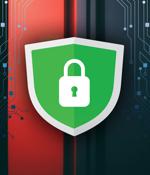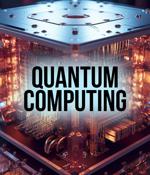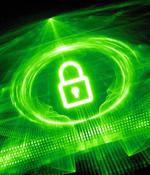Security News

NIST, the US National Institute of Standards and Technology, is leading a process to create and standardize new encryption algorithms to replace RSA and ECC. The new algorithms rely on mathematical approaches that are not easily broken by quantum or classical computers. In December of 2022, US President Joe Biden signed into law the Quantum Computing Cybersecurity Preparedness Act which mandates timelines for moving government systems to PQC algorithms.

With global governments having collectively pledged more than $38 billion in public funds for quantum technologies and $2.1 billion of new private capital flowing to quantum companies in 2022, quantum technologies, particularly quantum computers, are rapidly moving from the lab to the commercial marketplace. By leveraging the principles of quantum mechanics, quantum computers have the potential to perform certain computations exponentially faster than classical computers.

In an era where data security is paramount, the recent revelations about firmware backdoors implanted by Chinese government-backed hackers serve as a stark reminder of the evolving threat landscape. To secure data today from the risks of tomorrow, organizations need to take proactive measures in securing data against quantum risks.

Most people are barely thinking about basic cybersecurity, let alone post-quantum cryptography. But the impact of a post-quantum world is coming for them regardless of whether or not it's keeping...

Signal has announced an upgrade to its end-to-end encryption protocol to protect users of its popular messaging app from encryption-breaking attacks through quantum computers. "Quantum computing represents a new type of computational system which leverages quantum mechanical properties to solve certain complex problems many orders of magnitude more quickly than modern classical computers. Instead of bits as in a classical computer, quantum computers operate on qubits," explained Ehren Kret, CTO at Signal.

Signal has adopted a new key agreement protocol in an effort to keep encrypted Signal chat messages protected from any future quantum computers. Quantum computers - which every decade experts believe may be able to crack today's encryption schemes within the next decade or two - aren't particularly useful at the moment.

Signal has announced that it upgraded its end-to-end communication protocol to use quantum-resistant encryption keys to protect users from future attacks. For communication apps, like Signal, that use end-to-end encryption to protect communication between two parties, the concern is that encrypted communications can be intercepted and deciphered to expose the contents of the communication.

Encrypted messaging app Signal has announced an update to the Signal Protocol to add support for quantum resistance by upgrading the Extended Triple Diffie-Hellman (X3DH) specification to...

Digital information exchange can be safer, cheaper and more environmentally friendly with the help of a new type of random number generator for encryption developed at Linköping University. Experimental setup of the quantum random number generator.

Google has announced the first open-source quantum resilient FIDO2 security key implementation, which uses a unique ECC/Dilithium hybrid signature schema co-created with ETH Zurich. FIDO2 is the second major version of the Fast IDentity Online authentication standard, and FIDO2 keys are used for passwordless authentication and as a multi-factor authentication element.